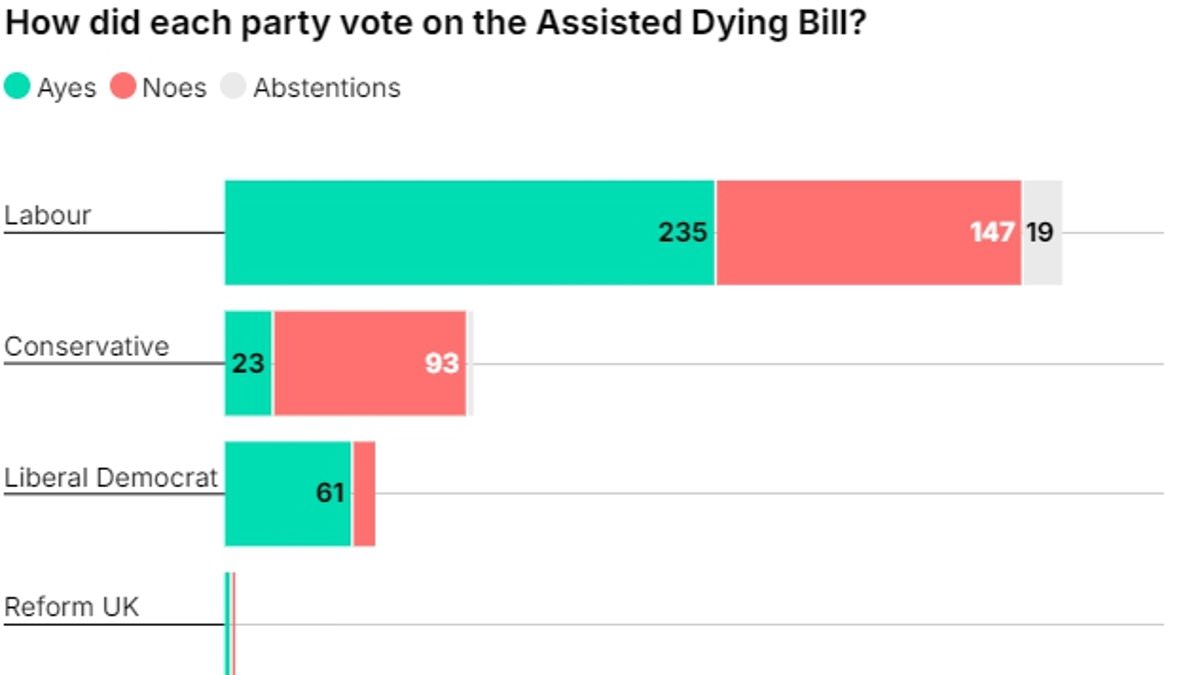The historic vote on legalising assisted dying exposed wide divisions in all the major parties on whether citizens can be helped to end their own lives.
MPs voted by 330 to 275 in favour of allowing the legislation to continue through Parliament.
But both sides were made up of an alliance of odd bedfellows. MPs were given free rein to go which way they wanted in a so-called ‘conscience vote’.
These are used when deciding on issues which transcend party lines on social issues – other examples have included the vote to legalise same-sex marriage, to outlaw fox hunting, and any votes involving abortion.
Some 235 Labour MPs including Sir Keir Starmer and Chancellor Rachel Reeves voted in favour of Kim Leadbeater’s Terminally Ill Adults (End of Life). But 147 voted against it, including Deputy PM Angela Rayner and Health Secretary Wes Streeting.
On the opposition side, the Tories were split 93 against and 23 for. Those for it included former PM Rishi Sunak and shadow chancellor Mel Stride. But new party leader Kemi Badenoch voted against it.
Meanwhile Sir Ed Davey was one of 11 Lib Dem MPs to vote no, while 61 of his newly enlarged party voted for it.
The division even stretched to Reform, even though Nigel Farage’s outfit has just five MPs.
Mr Farage and James McMurdoch voted against it, while Richard Tice, Lee Anderson and Rupert Loew voted for it .
If it completes its passage into law, the Bill will allow terminally ill, mentally competent adults – with less than six months to live – to seek an assisted death in England and Wales with the approval of two doctors and a High Court judge.
Today was the first time MPs had voted on the issue of assisted dying since 2015.
In her impassioned speech in the Commons today, Ms Leadbeater said that the debate on the issue is ‘long overdue’ and, while not an easy subject, it is the job of parliamentarians to ‘address the issues that matter to people’.
She told MPs a more holistic view to care for dying people must be taken, saying: ‘This Bill will give society a much better approach towards end of life.
‘We’re already seeing conversations about dying and death in a way that we haven’t seen, I don’t think, enough in this country.’
